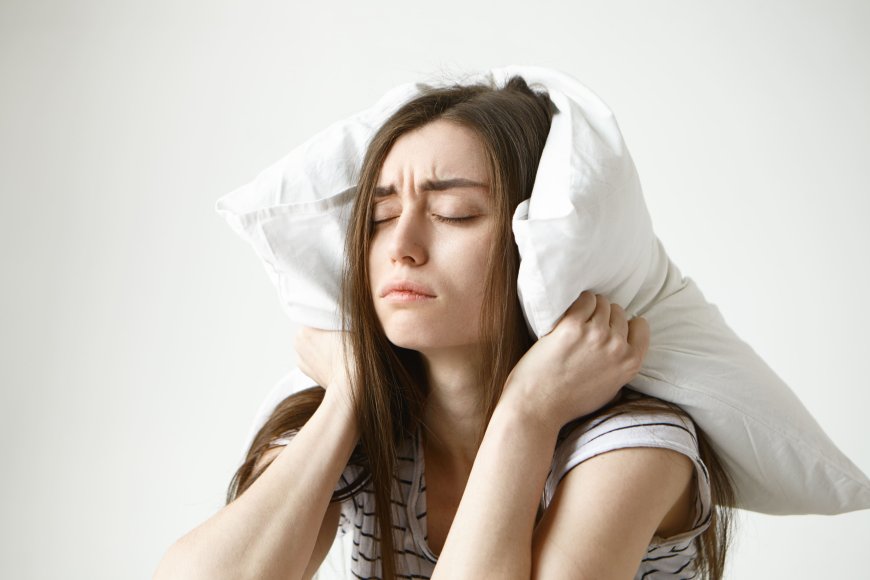Sleep Problems and How to Solve Them
Discover common sleep problems and effective solutions to improve your sleep quality. Say goodbye to restless nights and hello to refreshing rest.

In our fast-paced world, sleep often takes a backseat to our busy schedules, leading many to experience common sleep problems. Whether it's tossing and turning at night, waking up feeling groggy, or struggling to fall asleep, these issues can significantly affect our daily lives. Poor sleep not only impacts our mood and productivity but can also have long-term health consequences.
But fear not! This article will explore the most common sleep problems, their causes, and effective solutions to help you reclaim restful nights. By understanding these challenges and implementing practical strategies, you can improve your sleep quality and overall well-being. So, let’s dive in!
Understanding Common Sleep Problems
Insomnia: The Struggle to Sleep
Insomnia is one of the most prevalent sleep disorders affecting millions worldwide. It is characterized by difficulty falling asleep, staying asleep, or waking up too early. This can lead to daytime fatigue, irritability, and impaired concentration.
Causes of Insomnia
-
Stress and Anxiety: Worries about work, relationships, or health can keep your mind racing at night.
-
Lifestyle Choices: Irregular sleep schedules, excessive screen time before bed, and caffeine consumption can disrupt your sleep patterns.
-
Medical Conditions: Chronic pain, asthma, and other health issues can make it difficult to sleep soundly.
Solutions for Insomnia
-
Establish a Sleep Routine: Go to bed and wake up at the same time every day, even on weekends.
-
Create a Relaxing Environment: Make your bedroom a sanctuary for sleep by keeping it cool, dark, and quiet.
-
Limit Stimulants: Avoid caffeine and nicotine in the hours leading up to bedtime.
-
Practice Relaxation Techniques: Consider meditation, deep breathing exercises, or gentle yoga to calm your mind before sleep.

Sleep Apnea: A Silent Disruptor
Sleep apnea is a serious condition where breathing repeatedly stops and starts during sleep. This can lead to fragmented sleep and decreased oxygen levels in the body, causing fatigue and other health issues.
Types of Sleep Apnea
-
Obstructive Sleep Apnea (OSA): The most common type, caused by a blockage of the upper airway.
-
Central Sleep Apnea: Occurs when the brain fails to signal the muscles to breathe.
-
Complex Sleep Apnea Syndrome: A combination of both obstructive and central sleep apnea.
Solutions for Sleep Apnea
-
Consult a Doctor: If you suspect you have sleep apnea, seek medical advice for proper diagnosis and treatment.
-
Lifestyle Changes: Maintain a healthy weight, avoid alcohol, and sleep on your side to reduce symptoms.
-
Continuous Positive Airway Pressure (CPAP): A common treatment that uses a machine to help keep your airway open during sleep.
Restless Legs Syndrome (RLS): The Uncontrollable Urge
Restless Legs Syndrome (RLS) is a condition characterized by an uncontrollable urge to move the legs, often accompanied by uncomfortable sensations. This can make it difficult to relax and fall asleep.
Causes of RLS
-
Genetics: RLS can run in families, indicating a possible genetic link.
-
Iron Deficiency: Low iron levels have been associated with RLS symptoms.
-
Chronic Diseases: Conditions like diabetes and kidney failure can increase the risk.
Solutions for RLS
-
Iron Supplements: If iron deficiency is a concern, consult your doctor about supplements.
-
Leg Stretches: Gentle stretching or massage before bed can help alleviate symptoms.
-
Warm Baths: Taking a warm bath can relax your muscles and improve circulation.
Nightmares and Night Terrors: Disturbing Sleep Experiences
Nightmares and night terrors can disrupt sleep and lead to fear of going to bed. Nightmares are vivid dreams that cause distress, while night terrors are episodes of intense fear during sleep, often accompanied by screaming or thrashing.
Causes of Nightmares and Night Terrors
-
Stress and Trauma: Experiencing stressful events or trauma can lead to vivid nightmares.
-
Medications: Certain medications, particularly those affecting the brain, can contribute to sleep disturbances.
-
Sleep Disorders: Conditions like sleep apnea or insomnia can increase the likelihood of nightmares.
Solutions for Nightmares and Night Terrors
-
Discuss with a Therapist: If nightmares are frequent, consider talking to a mental health professional for coping strategies.
-
Create a Calming Bedtime Routine: Engage in relaxing activities before bed to reduce anxiety.
-
Limit Screen Time: Reduce exposure to frightening or intense media before sleep.
Shift Work Sleep Disorder: The Challenge of Irregular Hours
For those who work night shifts or rotating schedules, sleep can become elusive. Shift Work Sleep Disorder (SWSD) affects the body’s circadian rhythm, leading to insomnia and excessive sleepiness.
Causes of SWSD
-
Disrupted Circadian Rhythm: The body’s internal clock struggles to adjust to irregular sleep patterns.
-
Social and Family Conflicts: Shift work can interfere with social activities and family time, leading to stress.
Solutions for SWSD
-
Stick to a Consistent Schedule: Try to maintain a regular sleep schedule, even on days off.
-
Create a Sleep-Conducive Environment: Use blackout curtains and earplugs to minimize disturbances.
-
Light Exposure: Use bright light during work hours and limit exposure to light before sleep to help regulate your circadian rhythm.
FAQs
1. What are the most common sleep problems people face?
Common sleep problems include insomnia, sleep apnea, restless legs syndrome (RLS), nightmares, night terrors, and shift work sleep disorder.
2. How can I improve my sleep hygiene?
Improving sleep hygiene involves maintaining a consistent sleep schedule, creating a comfortable sleeping environment, avoiding stimulants, and engaging in relaxing activities before bed.
3. When should I see a doctor about my sleep problems?
If your sleep problems persist despite trying self-help strategies, or if you experience severe symptoms like excessive daytime sleepiness or breathing difficulties at night, consult a healthcare professional.
4. Can diet affect my sleep quality?
Yes, certain foods and drinks can impact sleep quality. Avoid caffeine, alcohol, and heavy meals close to bedtime, and consider foods rich in magnesium and tryptophan, which may promote better sleep.
5. Are sleep aids effective for treating sleep problems?
Sleep aids can be effective for short-term use, but they may not address underlying issues. It's important to consult a healthcare professional before using any sleep medications.
Conclusion
Sleep problems can significantly impact your quality of life, but understanding their causes and implementing effective solutions can pave the way to restful nights. From tackling insomnia and sleep apnea to managing restless legs syndrome and nightmares, there are numerous strategies to improve your sleep quality.
By prioritizing sleep hygiene, consulting with healthcare professionals when necessary, and making lifestyle changes, you can overcome common sleep challenges and enjoy restorative sleep. Remember, a good night’s sleep is not just a luxury; it’s essential for your overall health and well-being.
So, take the first step today towards better sleep and a brighter tomorrow!
Also read this: Heart Attack vs Cardiac Arrest: Signs Treatments & More



















































